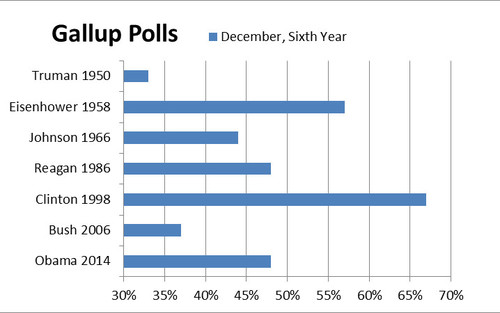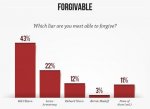At a gathering of the Asian American Journalists Association Bill Clinton defended his wife regarding the email imbroglio:
"First of all, the FBI director said when he testified before Congress, he had to amend his previous day's statement that she had never received any emails that are classified. They saw two little notes with a 'C' on it," Clinton said.
"This is the biggest load of bull I've ever heard."
Clinton went on to say that while the classification system of sensitive emails was "too complicated to explain to people," what is clear is that Clinton and her colleagues were never being careless with national security.
"Do you really believe there are 300 career diplomats because that's how many people were on these emails, all of whom were careless with national security? Do you believe that?" he said. "Forget about Hillary, forget about her. Is that conceivable?"
Bill Clinton talks email controversy: 'Biggest load of bull' - CNNPolitics.com
He's right. Comey did have to amend his statements, those emails had been improperly marked.
Yet, what we hear played over and over again is sliced up CEC version of a tape that leaves out the only thing marked classified at the time carried "bore markings" (c) on .000001% of all the emails she sent or received. Later Comey states in his testimony they were not properly marked -- and it would have been easy for anyone with knowledge of handing classified documents to miss. The content of the emails were about her making a freakin' telephone call.
We found out later those "bore markings" were not even classified to begin with. [
Daily Press Briefing - July 6, 2016 ]
And
even if they were, they originated at State, so she could have declassified them, as she has that power. But they weren't. AND,
even if -- they were on such a level of "secrecy" those same two (c) emails could have been sent through the US mail with a simple No. 10 envelope and a First Class postage stamp.
The other part of this which Bill reminds us, is allllll the other career diplomats she exchanged emails would have been just as careless.
"Forget about Hillary, forget about her. Is that conceivable?"


